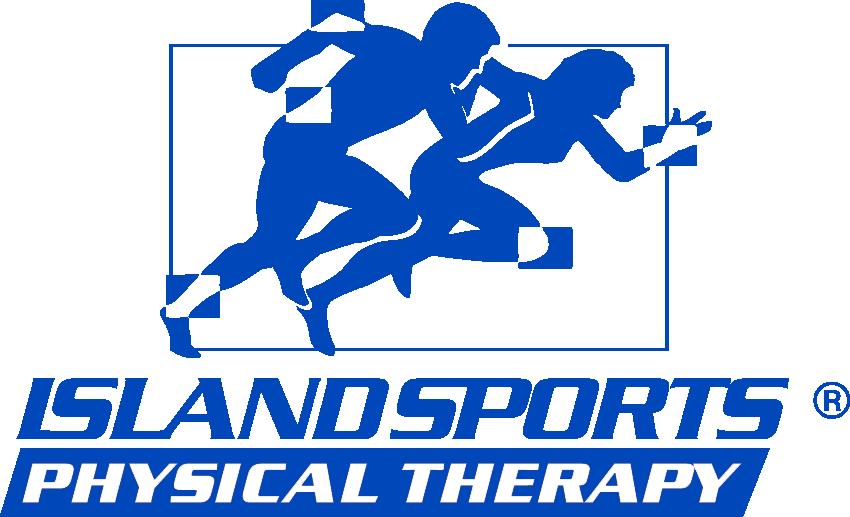Sports Physical Therapist Your Injury Guardian
Having a skilled professional in your corner can significantly impact your athletic journey. Island Sports Physical Therapy in East Setauket focuses on meeting the distinct needs of individuals engaged in sports, ensuring they achieve a safe and effective return to their optimal performance levels. By carefully assessing each athlete’s unique physical condition, the therapist creates tailored strategies aimed at injury prevention and rehabilitation. Personalized training programs are structured to boost strength, flexibility, and general fitness, while also educating athletes about correct body mechanics. Ongoing evaluations allow for adjustments to these strategies, facilitating a smooth recovery process and enhancing overall performance. The contribution of a dedicated therapist is crucial for maintaining optimal performance and recovery in sports physical therapy and medicine, ensuring athletes receive the best care through educated assessments, tailored exercise programs, and comprehensive rehabilitation.
Injury Prevention Strategies
The well-being of athletes is paramount, as physical setbacks can hinder their performance and overall health. To ensure a positive experience in any sport, it is crucial to implement effective methods aimed at reducing risks. Comprehensive warm-up routines are vital, as they enhance flexibility and prepare the body for demanding physical activity. Dynamic stretching, favored for its ability to improve range of motion and minimize the potential for injury, should precede intense workouts. Equally important are the cool-down tec hniques that help athletes recover and lessen muscle soreness post-activity. Maintaining proper technique throughout training is essential, as poor form often results in recurring issues. Seeking guidance from professionals not only provides access to tailored plans but also educates athletes on recognizing early signs and symptoms of injuries, ultimately enhancing their sport experience and supporting their health care journey.
The Importance Of Rehabilitation
The journey towards regaining health and functionality after an injury or medical condition involves a comprehensive approach that goes beyond physical recovery. This process, often guided by knowledgeable health professionals, emphasizes a structured framework for achieving optimal outcomes. Initial assessment, targeted interventions, and diligent follow-up are vital components of this comprehensive strategy. The emotional and psychological factors significantly influence this journey. Injuries can lead to mental health challenges, including anxiety and depression, making it crucial to implement coping strategies. Setting achievable goals serves as a valuable method to enhance mental resilience, while a solid support system fosters emotional stability during rehabilitation. Physical therapists play a pivotal role in the recovery process for each patient. They assess injuries meticulously and design tailored rehabilitation plans that address individual needs. Their expertise in pain management, honed through rigorous training in physical therapy education and board certification, makes them invaluable health professionals for athletes and patients alike.
Key Aspects of Recovery After Injury
- A comprehensive recovery approach includes physical, emotional, and psychological factors.
- Setting achievable goals can enhance mental resilience during rehabilitation.
- Physical therapists create tailored rehabilitation plans based on individual assessments.
- Effective pain management is crucial for successful recovery and is a key focus of physical therapy.
Enhancing Athletic Performance
Achieving excellence in sports requires a comprehensive approach that integrates physical training, nutrition, and mental conditioning with expert guidance from a therapist. Evidence-based methods highlight the importance of personalized programs tailored to specific needs. Such strategies can lead to significant improvements in physical capabilities and overall efficiency. Incorporating adequate rest and recovery techniques is essential, enabling the body to heal and develop strength effectively. Nutrition is vital for optimal performance, and understanding the functions of macronutrients can assist athletes in fine-tuning their diets. Hydration’s impact on energy levels cannot be underestimated, while the timing of food intake can optimize results during strenuous training. Working alongside a doctor of physical therapy may enhance these aspects further, promoting peak physical condition. Training regimens differ, encompassing strength, sports therapy, and rehabilitation techniques essential for aspiring sports physical therapists in East Setauket to excel in their careers and meet the standards set by the American Physical Therapy Association and the Commission on Accreditation in Physical Therapy Education.
Understanding Sports Medicine Roles
The field of sports medicine plays a crucial role in maintaining and enhancing the health of athletes. Professionals within this arena include athletic trainers, who focus on injury prevention and emergency medical response, as well as sports therapists dedicated to improving range of motion and strength. Each specialist contributes uniquely to the overall well-being of those engaged in physical activity. For instance, physical therapists are essential for recovery and sports rehabilitation, implementing tailored programs to facilitate healing. Collaboration among these experts is vital; they often work together on sports teams to develop comprehensive care plans that address athletes’ specific needs. Aspiring individuals can pursue a degree in physical therapy or enhance their qualifications to advance in this dynamic field of sports medicine by obtaining certifications such as DPT, gaining experience in athletic training, and specializing in areas like sports rehabilitation and emergency medical response to effectively assist sports teams and improve the range of motion for athletes.
Benefits Of Physical Therapy
Engaging in therapeutic practices can significantly enhance an individual’s journey toward recovery, fostering improved mobility and overall health. Patients in a sports therapy program may experience tailored exercises designed to help athletes recover effectively. Recovery timelines can vary widely based on injury type and individual circumstances, necessitating a personalized approach. Physical therapists may employ pain management techniques to address discomfort and promote healing. A customized recovery plan is essential, as it considers patient-specific factors impacting their progress. Long-term health benefits often include improved physical activities and the reduction of chronic conditions. Education empowers patients, equipping them with strategies for self-care while promoting active lifestyles
Navigating Certification And Education
Understanding the requirements for credentials in today’s dynamic landscape is essential for those pursuing a career in healthcare. A comprehensive grasp of what is needed helps ensure that professionals can effectively provide emergency medical care. Details about state-specific regulations highlight the importance of familiarizing oneself with the regional nuances that impact practice. National certifications are pivotal for establishing credibility and serve as a prerequisite for many career paths. Educational pathways open doors to a variety of opportunities. For instance, completing a graduate degree often lays the foundation for more specialized studies. These advanced programs focus on how physical therapists help individuals treat physical injuries, equipping graduates to empower patients. Options like residency and fellowship provide valuable pathways for professionals to enhance their skills in emergency medical care, allowing physical therapists to treat physical injuries and help athletes recover, ultimately enabling them to regain their ability to play and compete at a higher level.
Healthcare Credentials
- Understanding state-specific regulations is crucial for compliance and effective practice in healthcare.
- National certifications enhance professional credibility and are often required for various healthcare roles.
- Graduate degrees provide foundational knowledge for specialized studies in fields like physical therapy.
- Residency and fellowship programs offer advanced training opportunities for healthcare professionals, improving their skills in emergency medical care.
Common Sports Injuries And Treatments
Injuries sustained during athletic activities can lead to significant setbacks for individuals committed to their sport. These common conditions often include sprains, strains, and fractures, frequently occurring in high-demand environments where physical exertion is prevalent. Understanding effective treatment options is essential for maintaining health and performance. Initial assessment followed by the RICE technique—rest, ice, compression, and elevation—forms a foundational approach to recovery. Therapists work with athletes to devise tailored rehabilitation plans. This structured recovery process is crucial as it enables them to regain strength and agility necessary for their sport. education and training on verbal and non-verbal cues, strengthening agility, CPR and emergency care offered by the American Red Cross or the American Heart Association, as well as education and training provided by accredited college athletic programs, to ensure athletes recover effectively from injuries while optimizing their performance.
The Future Of Athletic Training At Island Sports Physical Therapy in East Setauket
As the landscape of sports continues to evolve, professionals are increasingly looking for resources that harness the latest advancements in technology. New tools, such as wearables, enable real-time performance tracking, enhancing how athletes may get in shape. By leveraging AI, training and experience can be customized to meet individual needs, leading to improved outcomes. This data-driven strategy not only benefits athletes but also creates opportunities for employment in diverse sectors, including medical centers. Collaboration with medical specialists is essential for providing comprehensive care that addresses both physical and mental health, critical for achieving peak performance. Continuous education, exemplified by recognized residency programs, is vital for practitioners aiming to stay attuned to the evolving needs of patients with sports-related injuries, ensuring they can provide the highest level of care while exploring year-round opportunities for employment in medical centers that specialize in supporting professional athletes in getting in shape through substantial training and experience.
Advancements in Sports Technology
- Wearable technology allows for real-time performance tracking, improving athletes’ training efficiency.
- AI-driven training programs can be tailored to individual athletes, enhancing their overall performance.
- Collaboration with medical specialists ensures holistic care that supports both physical and mental health for athletes.
- Continuous education through residency programs keeps practitioners updated on the latest treatment methods for sports-related injuries.

